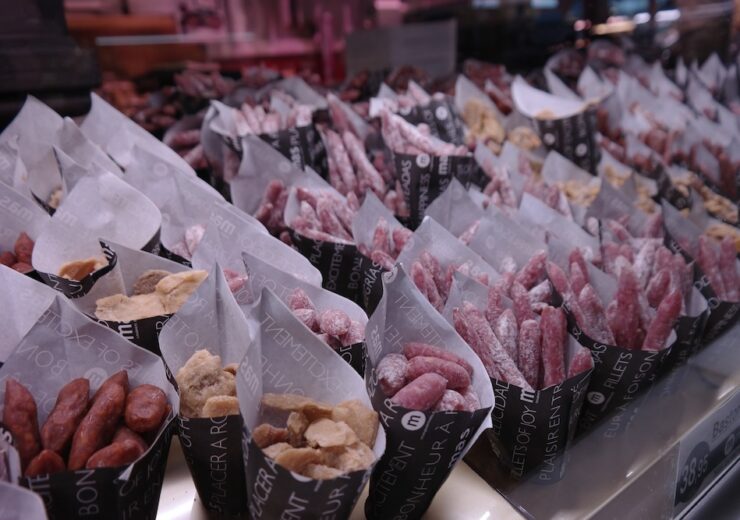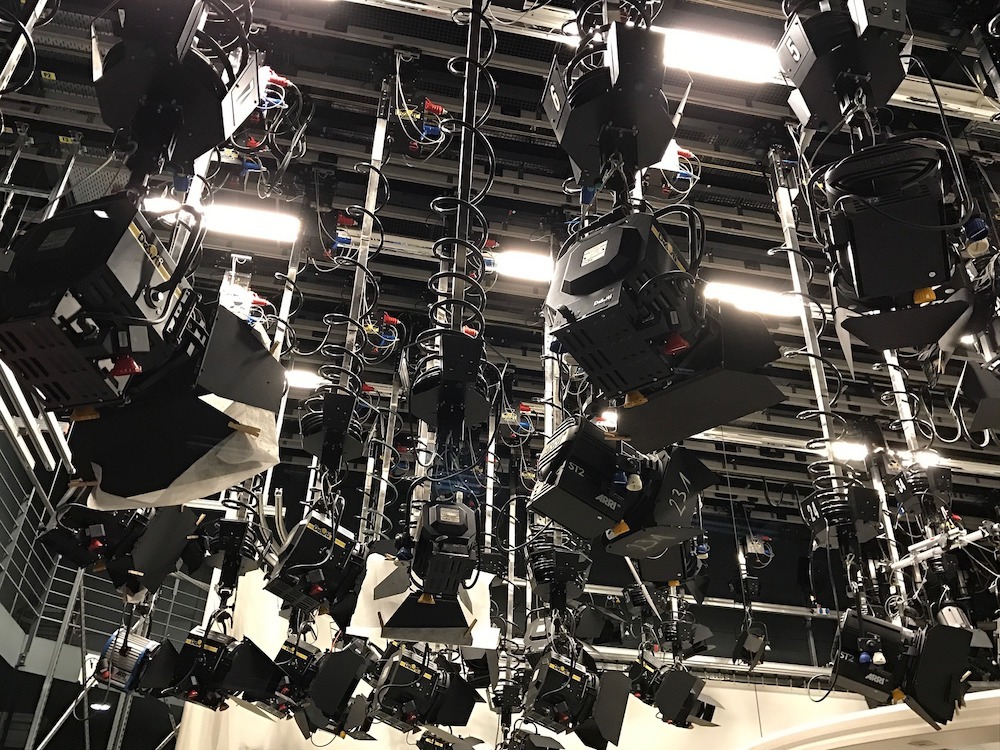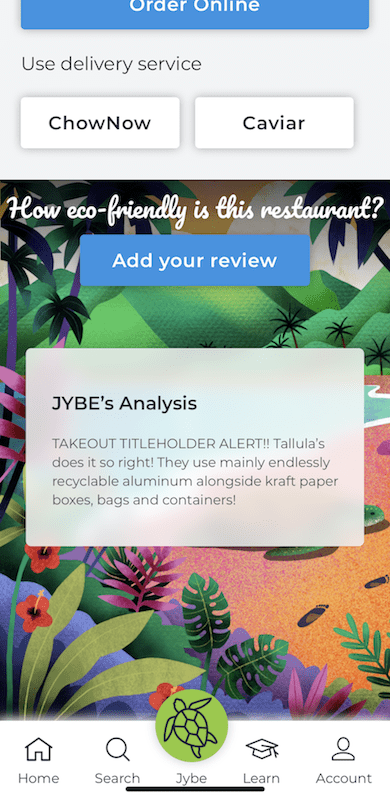California-based start-up JYBE allows consumers to find out whether or not restaurants pack takeaways in a sustainable way

In August, UK-based food delivery Just Eat Takeaway.com announced it had recorded €1bn in the first half of 2020 - a 44% year-on-year increase (Credit: Pixabay)
With Covid-19 making takeaways increasingly popular, it’s more important than ever to ensure restaurants are packing food in a sustainable way. Thomas Parker speaks to the founders of JYBE, an app that allows consumers to rate how environmentally-friendly an establishment’s takeaway packaging is.
During the past 20 years or so, it has not been an uncommon sight to see takeaway delivery drivers and riders distributing food to houses in towns and cities across the globe.
Businesses, ranging from giants such as Domino’s Pizza to small local Chinese and Indian restaurants, have built themselves around this burgeoning consumer demand.
So popular has the at-home dining experience become that incredibly successful couriering companies — such as Deliveroo, UberEats and Just Eat — have sprung up to provide a digital link between restaurant and customer.
And the global lockdowns brought about by Covid-19 have created further demand for takeaway food.
In August, UK-based food delivery business Just Eat Takeaway.com announced it had recorded revenues of €1bn ($1.1bn) in the first half of 2020 — a 44% year-on-year increase largely driven by consumers unable to dine out.
Alongside this, the group — which published its first half-year results since a £6bn ($7.7bn) merger between the UK’s Just Eat and Amsterdam-based Takeaway.com was approved — predicted strong order growth throughout the rest of the year.
Fellow giants of the takeaway industry Domino’s Pizza also announced in August that it had seen sales grow in the UK and Ireland by 5.5%.
The UK’s Coronavirus lockdown saw collections tumble by 87%, while deliveries jumped by 22%.
Because of the nature of takeaway food, most of the packaging used is single-use – and much of it is created from plastic.
In research published by the UK-based Sunday Times in February 2020, it was estimated takeaway delivery companies in the UK distribute more than one billion plastic trays, lids and bags annually.
Added to this, the typical delivery includes six pieces of plastic — with 15 meals ordered by the Sunday Times found to contain more than 100 plastic items.
This makes it difficult for eco-conscious consumers to order takeaway food without the risk of being responsible for large amounts of single-use plastic waste — which is where JYBE comes in.
In essence, JYBE — which can currently be used in Los Angeles and San Francisco in conjunction with more than 400 restaurants — is an app allowing consumers to rate their experiences of takeaway packaging.
Explaining the thinking behind the app, JYBE co-founder and CEO Alison Diamond says: “It’s a habit and is something people are already doing — every time someone orders food online, they can’t order the something else from that app unless they give them some kind of review.
“And the whole philosophy is that we’re as powerful as our numbers, and we need to have lots and lots of reviews so we have lots of information to show people coming to us for the first time, and it was easy to make that decision.”
History of JYBE
JYBE was dreamt up by the company’s chief communications officer Paul Kradin.
In August 2018, he set up a business alongside his husband, Steve, in their home city of Los Angeles called CO2CYCLE.
This is an environmental sustainability firm working with commercial and photoshoot sets to make them carbon-neutral, single-use plastic-free and more mindful about recycling waste.
Coming home one day from a particularly arduous 12 or 14-hour day, the pair decided to order dinner to be delivered — with a plastic bag full of plastic clamshells arriving on their doorstep.
Kradin adds: “I remember we looked at each other incredulously and thought ‘why do we spend all day trying to make green sets a reality and then order plastic that’s delivered to our home’, and I said to my husband ‘if I knew this was coming, I would never have ordered from this restaurant’.
“And that was essentially the seed for JYBE — the thought that we needed a platform where people could share ratings just like with food, allowing mindful consumers and diners to know in advance when they order from somewhere how their food will arrive.”
Due to the pair both being overwhelmed with the work they were doing with their own companies, they wanted to bring someone on board who “shared our vision and our passion, and who we would enjoy working with”.
Kradin adds: “Alison and her husband are longtime friends but they were gainfully employed — until one day in November 2018 Alison announced she was leaving her job.
“At which point Steve and I went into a huddle and said ‘we should pitch Alison’.”

Inspired by the idea, she decided to join the organisation as its CEO — with husband Kevin joining as CTO.
Since its conception, JYBE has been through many iterations, with the first year being spent laying down the groundwork and figuring out what exactly they wanted to do and how they were going to inform consumers about how sustainable takeaways are.
Its first iteration saw the company build a “janky website” that explained what the organisation did.
Alongside this, Diamond went out and spoke to restaurants in the local area — speaking to them in person, trying to get them on the phone or sending them an email that explained how JYBE wants to help to make their takeaways more sustainable.
Diamond explains: “And it turns out all of the employees at the restaurants loved it, saying ‘this is great, we’re sick to our stomach every time we package all these styrofoam punch holes and plastic utensils that people don’t need’.
“It was, however, very hard to get to the decision-makers, this is mainly because the mindshare of a restaurant operator is spread pretty thin.
“And at the beginning, our algorithm was so complicated as we were really going to get down to every material involved in the product, as we wanted to give a true and proper rating based on their sustainability, but that didn’t happen.”
This saw the company decide to pivot and go down the user review route, which allowed them to make it simpler as they did not have to go into detail about every single item in a bag.
From reviews to the ‘Sustainability Bill of Rights’: How JYBE is looking to make takeaways more sustainable
The basic premise behind JYBE — which currently has several hundred subscribers — is letting consumers use the app to report the type of takeaway packaging by restaurants.
Predominantly targeted at Millennials, the app ranks how sustainable an establishment’s packaging is through its “turtle score” system.
Diamond explains: “Every review that comes in comes with a picture, meaning someone can look at it to make sure the view is accurate to call out things that we see, and that’s where users are going to get the most information — in this little bit of analysis.
“This is typically two or three sentences where we usually say ‘this is great’ or ‘this isn’t so great, and we can’t wait to help them swap that out’.

“Then there’s a turtle score, which goes from one to four turtles, which focuses on things like whether or not a restaurant provides cutlery that wasn’t asked for, how much plastic was provided, was there anything marked compostable and was anything marked as styrofoam.
“However, because we’ve gotten a lot of feedback that people really want the details and there’s a lot of opportunities to learn, we’re going to be adding badges that will call out the different types of materials that are inside of it — such as bio-plastics, which we will then populate with a definition alongside a basic explanation of the problem.
“There’s also going to be a plastic metre because people want to know how much they’re going to get, so it will offer a lot more detail then we did in our first iteration.”
Alongside this, JYBE has developed what it calls a “Sustainability Bill of Rights”, which outlines the most and least sustainable materials to package takeaways.
Diamond says: “We wanted to focus on materials that no matter where they end up they don’t cause harm.
“So we obviously prioritise reusables, which is the gold standard and we want to end up there — and there are lots of companies that are trying to put in reusable services to restaurants so they can move towards more of a zero-waste facility — but it’s not widespread yet.
“And because that’s the case, we then go to materials like aluminium and glass, which are forever recyclable.
“These are not going anywhere, and in fact, they’re seen as so valuable that even if they do end up in the general waste, they’re usually picked out.
“Then, of course, there are certain types of biodegradables because no matter where materials like an unlined craft paper box end up, it’ll be okay.
“We also focus a lot on swapping out plastic with things like bamboo or palm because again, no matter where they end up, it will be okay.”
Alongside the app’s consumer focus, the team behind JYBE also want to help restaurants transition to more sustainable material to package their takeaways.
Kradin explains: “The challenge with a lot of restaurants is that they’re so slammed right now with just staying in business, the idea of envisioning them sitting down in front of their computer and really scouring for the best products to replace plastic is hard to imagine.
“So we’ve done it for them, we’ve ordered a vast array of materials that consumer are very familiar with and are sustainable.”
To help these establishments, JYBE offers restaurants the opportunity to swap out their usual plastic materials for more sustainable materials to package their takeaways.
Kradin adds: “This is designed to show businesses that there doesn’t have to be any big changes in their kitchen operations — they will be packing the food up just as they have done previously, they don’t need more space for storage, but they can get more positive feedback for what they do.
“And we’re also very transparent about what the costs are, and in many cases, the cost is either equal or less than what they’d be paying for the equivalent plastic product.
“Alongside this, we give them the links to all of the vendors — so if they want to reorder something on there, all they have to do is click and it’s all laid out for them — so we hope it’s a win-win situation.
“We’re all about promoting people who are doing good, not punishing anyone who’s not doing it as we realise there are cultural habits and behaviours that have formed over the years.
“But for those players who are doing well, we want to help promote their business and show other people they can have this experience too because such a large part of our user base really will prioritise restaurants who are making those efforts.”

Overall, Kradin sees JYBE as one of a number of businesses that can help unite the general public to tackle the “daunting” single-use plastic problem.
He explains: “The statistics are there, and the headlines we keep reading makes it seem virtually impossible for us to turn this problem around.
“As an individual, you may feel overwhelmed by this, but services like JYBE and other companies are springing up to make it possible for individuals to have an impact.
“Because if we share information and we’re able to use our spending power to signal our preferences, our capitalist system rewards that as the market will respond to consumer demand – so you just have to coordinate consumer demand in order to bring about those changes.
“We’re looking at market-driven solutions, we’re not calling for regulations or rules, we’re calling on people who care about this issue to take one extra step in their ordering process to double-check the restaurant they’re choosing is mindful about packaging.
“We will then be able to take our data to restaurants that are sitting this out and say ‘look how well your competitors are doing, you could be doing this if you let us help promote you’.
“It’s about getting the consumers to understand they really do have a voice, they really do have influence, and they can bring about this change.”
